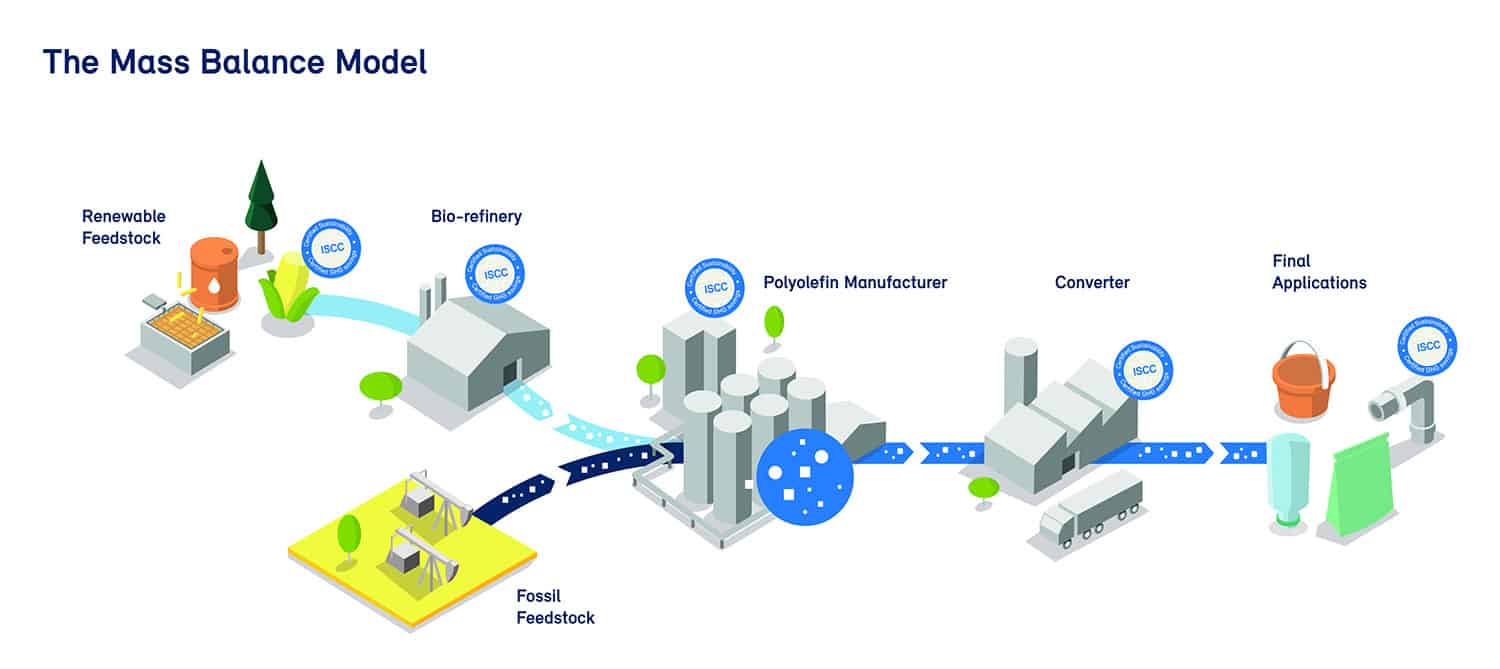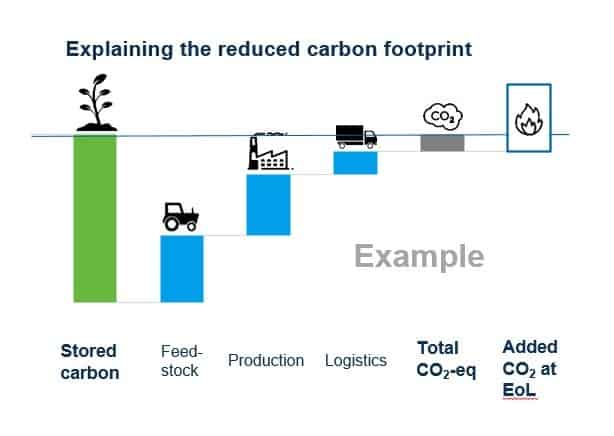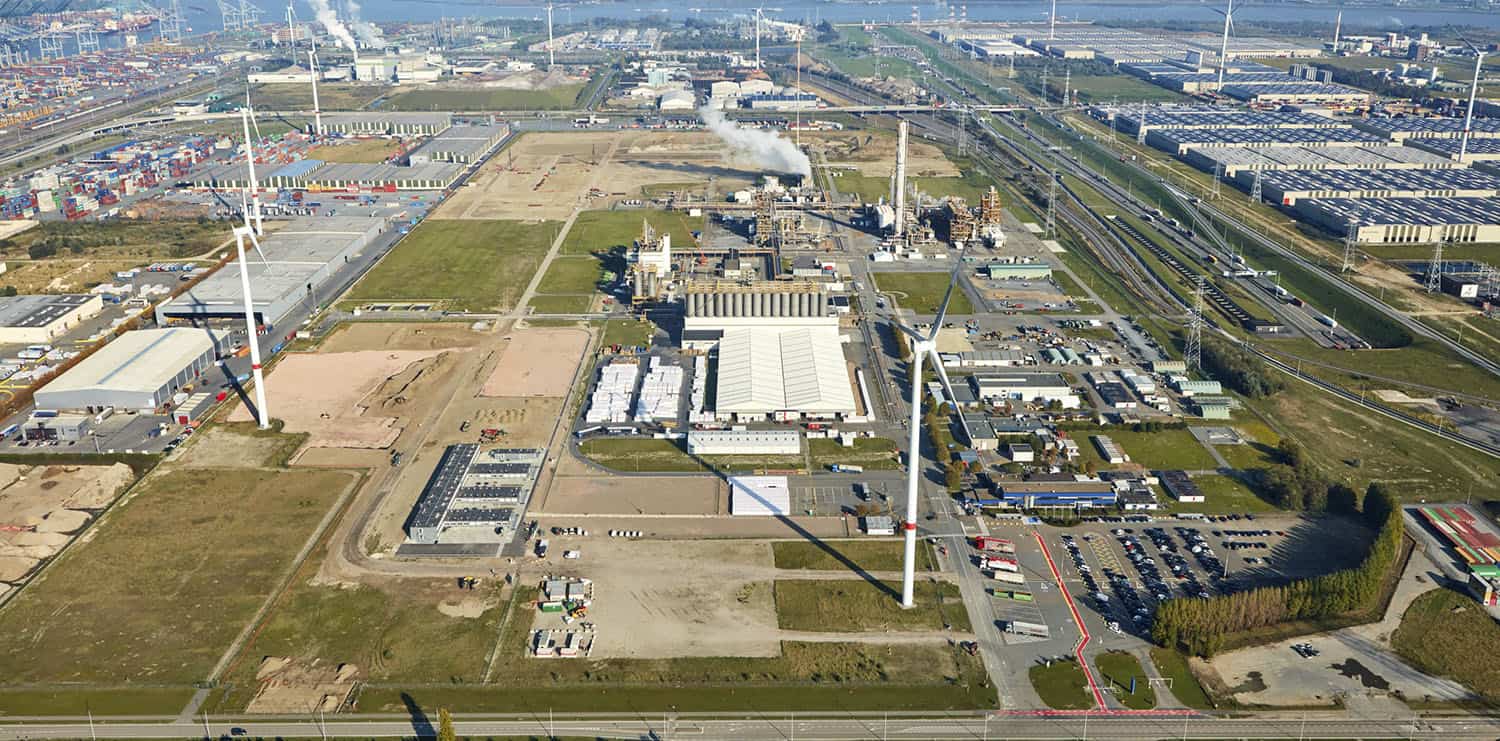- Life-cycle assessment (LCA) shows greenhouse gas emissions of Bornewables™ polypropylene go beyond carbon neutrality: Reduced by at least 120% compared to virgin polypropylene (at Borealis’ gate).
- The Bornewables™ product range of polyolefins offer the same high performance levels as virgin polyolefins and can be recycled in the same way
- EverMinds™ in action: Bornewables help value-chain partners meet their climate and sustainability goals
Borealis’ Bornewables™ product range of polypropylene provides significantly smaller greenhouse gas (GHG) emissions compared to polyolefins made from fossil-based feedstock, according to a new LCA study.
The study was carried out by ifeu – one of the world’s most recognised, independent ecological institutes – based in Heidelberg, Germany. They analysed the life cycle emissions of Borealis’ polypropylene (PP) produced at its production sites in Kallo and Beringen, Belgium, when Neste’s renewable feedstock was used in the production to replace conventional feedstock. The study showed that from cradle-to-gate (all steps from the sourcing of raw materials to products leaving Borealis’ production site), GHG emissions are reduced by at least 120% (2.7kg of CO2 equivalent per kg of PP) compared to PP manufactured with fossil-based feedstock at the same location.
Furthermore, the Bornewables are a lower-emissions alternative to virgin PP, no matter which end-of-life option is chosen. Even in case of energy recovery, when the carbon stored in the product is released, the carbon footprint reduction still amounts to 52% compared to PP from fossil-based feedstock.
Helping customers meet their sustainability targets
Now proven to provide significant carbon emissions reductions when compared to virgin PP, the Bornewables are an example of what can be achieved through Borealis’ EverMinds™ platform, which promotes innovation and collaboration to accelerate the transition towards a more circular economy. The Bornewables circular portfolio is produced according to the mass balance model, by replacing conventional feedstock with an identical volume made from ISCC PLUS certified sustainable feedstock.
By choosing the Bornewables, customers can manufacture more sustainable products with reduced carbon footprint, while retaining their recyclability at the same level with their traditional counterparts. Bornewables help customers decouple from resources based on conventional feedstock. All this is possible while avoiding switching costs, and delivering the product quality and safety needed by most demanding applications, such as food packaging, automotive and healthcare.
“Now that a LCA has been carried out on the Bornewables, our customers can rely on this portfolio to reduce GHG emissions,” says Christopher McArdle, Borealis Vice President Polyolefins Strategy & New Business Development. “Life demands progress. As a proven range of circular polyolefins, the Bornewables are an excellent choice for those customers looking for new ways to meet their sustainability targets, without sacrificing product quality or performance. They are another way in which Borealis is reinventing for more sustainable living.”


Watch this video to learn more about mass balance.
Packaging 360 is a comprehensive knowledge sharing ecosystem for the Indian packaging industry. Our services include an online content platform to deliver news, insights and case studies; organising conferences seminars and customised training; Providing Bespoke Project Consulting, Market Research and Intelligence.







